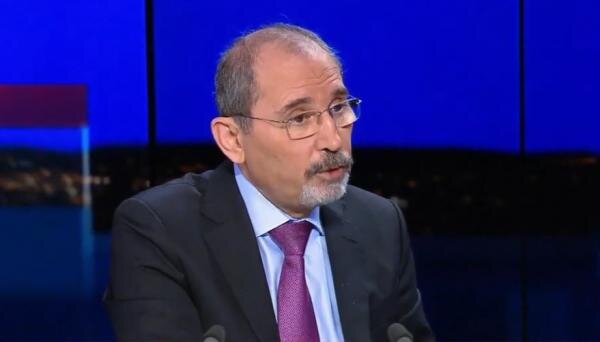All countries in the region want good relations with Iran: Jordan FM

TEHRAN - Jordan's Minister of Foreign Affairs Ayman Safadi has said all countries in the region want better relations with Iran based on the principle of good neighborliness and non-interference in internal affairs.
In an interview with the Arabic service of France 24, the Jordanian foreign minister said his country believes that a lot of regional issues need to be addressed and that’s why he talked to his Iranian counterpart Hossein Amir Abdollahian.
“We do not speak with anyone's proxies, and when we spoke, we spoke with the Iranian government directly through a phone call that the Iranian Foreign Minister had with me,” Safadi said, according to Ammon News, referring to his October telephone conversation with Amir Abdollahian.
He added, “Our position is clear. We want regional relations based on good neighborliness and non-interference in internal affairs, and many issues need to be addressed and discussed in this regard.”
The top Jordanian diplomat underlined that everyone in the Arab region wants good relations with Iran, but in order for these relations to be achieved, they must be based on clarity and transparency and on the principles of respect for neighborliness and non-interference in internal affairs, according to Ammon News.
The last telephone conversation between the foreign ministers of Iran and Jordan was held on October 11. In this conversation, Amir Abdollahian explained that Iran is in favor of friendly and brotherly relations based on mutual respect with regional countries and noted that the Islamic Republic and Jordan should benefit from economic and trade opportunities of the region to improve bilateral ties, according to the Iranian foreign ministry.
In the telephone conversation, Amir Abdollahian explained that Iran is in favor of friendly and brotherly relations based on mutual respect with regional countries and noted that the Islamic Republic and Jordan should benefit from economic and trade opportunities of the region to improve bilateral ties, according to the Iranian foreign ministry.
He expressed Iran's support for regional dialog and cooperation away from foreign interference and emphasized the expansion of cooperation among regional countries, especially Iran, Iraq, Syria, and Jordan, as a basis and driving force for further economic prosperity and stability in the region.
The top Iranian diplomat expressed support for the historical role of Jordan as custodian of the holy city of al-Quds and other Islamic and Christian sites in the city against the Zionist regime's efforts to exercise sovereignty over these places.
Abdollahian stressed the need for all Islamic countries to take responsibility regarding the issue of Palestine and the holy city of al-Quds. He emphasized the need for synergy among them regarding joint action in international organizations to help Palestine.
Abdollahian also reiterated Iran's stance regarding a referendum to determine the fate of Palestine, with the participation of its original inhabitants including Muslims, Christians, and Jews, as the only solution to the Palestinian issue. He described as unacceptable imposed plans that ignore the rights of the Palestinian people and prolong the occupation.
During the telephone conversation, Jordanian Foreign Minister Ayman Safadi also said Amman views relations with the Islamic Republic as important and respectable. He stressed the need for developing an understanding based on collective interests in light of regional conflicts.
He described terrorism and extremism as common challenges facing all regional countries.
The Jordanian foreign minister also called the issue of Palestine the number one problem in his country and, referring to Jordan's sacrifices in this regard. He stressed the need to ensure the rights of the Palestinian people.
The foreign ministers of the Islamic Republic of Iran and Jordan also conveyed greetings from their countries' high-ranking officials.
The Jordanian foreign ministry said in a statement that the two sides “also discussed efforts to resolve regional crises, contacts and dialogue paths taking place in the region to resolve differences, and build regional relations that consecrate security and stability, and serve the interests of all its peoples and countries.”
Safadi stressed that the Kingdom always works for dialogue, and wants healthy regional relations, based on the principle of good neighborliness and non-interference in internal affairs, the Jordanian statement added.
Jordan, together with the United Arab Emirates, is leading a new Arab effort to normalize relations between Syria and other Arab states.
On Tuesday, UAE Foreign Minister Sheikh Abdullah bin Zayed landed in the Syrian capital Damascus to meet Syrian President Bashar Assad, the most senior Emirati visit to the war-scarred country in a decade.
After Damascus, the top Emirati diplomat immediately traveled to Jordan, where he met with Jordanian King Abdullah II, an indication that regional issues were on the agenda of Emirati-Jordanian talks.
The Saudi-owned Asharq Al-Awsat claimed that it has seen a Jordanian-drafted document outlining a quid pro quo process under which Arab states would normalize ties with Syria in exchange for concessions from the war-torn country.
Leave a Comment